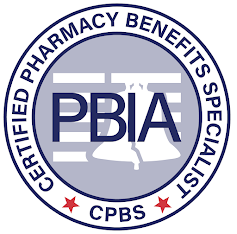News and notes from around the interweb:
- The Case Against Excluding Specialty Drug Coverage. Coverage and exclusion decisions for certain therapy classes that are not rooted in clinical rigor, particularly when there are not clinically equivalent alternatives available, could lead to a new round of scrutiny and more regulation that limit the ability of plan sponsors to implement effective benefit plan designs. The reality is that new costly specialty therapies will continue to come to market and that patients with complex, chronic conditions need appropriate access to them.
- 4 Ways Employers Can Contain Rx Costs. Providing the best mix of health care options and benefits can be a differentiator for companies trying to attract and retain top talent. Benefits leaders want to find the right mix of health care options that matches the needs (and wants) of employees and their families with plans that won’t hurt the company financially or overwhelm employees’ pocketbooks. One key benefit getting increased scrutiny by government and business leaders is prescription drug coverage, the cost of which has historically outpaced the cost of inflation.
-

Join the Movement! Documents reveal the secrecy of America’s drug pricing matrix. Several people who work in the industry, who asked not to be named due to the confidential nature of coalitions, said most employers, regardless of how big they are, have no idea what they’re giving up when they enter coalitions. Once employers are locked into the coalition, they can’t get a full second opinion on the drug prices they pay, experts said.
- Health Plan Transparency Reporting in 2022: Do You Know Where Your Health Care Dollars Go?. The Department of Labor, Health and Human Services and the IRS recently released an interim final rule with a request for comment, Prescription Drug and Health Care Spending. The rule implements another phase of the transparency provisions of the Consolidated Appropriations Act, 2021 (CAA), and is open for public comment through Jan. 24, 2022. This most recent rule requires reporting entities—group health plans, both fully insured and self-funded, and issuers of insured group health plans or individual coverage—to report annually information about prescription drug and health care spending.
- It’s time to bring competition back to health care. We have allowed our health care system to fall victim to a highly consolidated group of pharmacy benefit managers (PBMs). These organizations control drug pricing using formulary inclusion fees and other bizarre techniques which we permit to the detriment of those who need life enhancing or life-saving medications. We also permit the acquisition of patent rights for orphan drugs (important drugs that don’t have a large market) by venture capitalists who corner the market and raise prices to very high levels because that’s the point of cornering the market. Such conduct may or may not be illegal but it certainly is immoral.
The Certified Pharmacy Benefits Specialist (CPBS) educational offering includes knowledge that is critical to effective management of the pharmacy and medical drug benefit. If you want to learn more, click here.